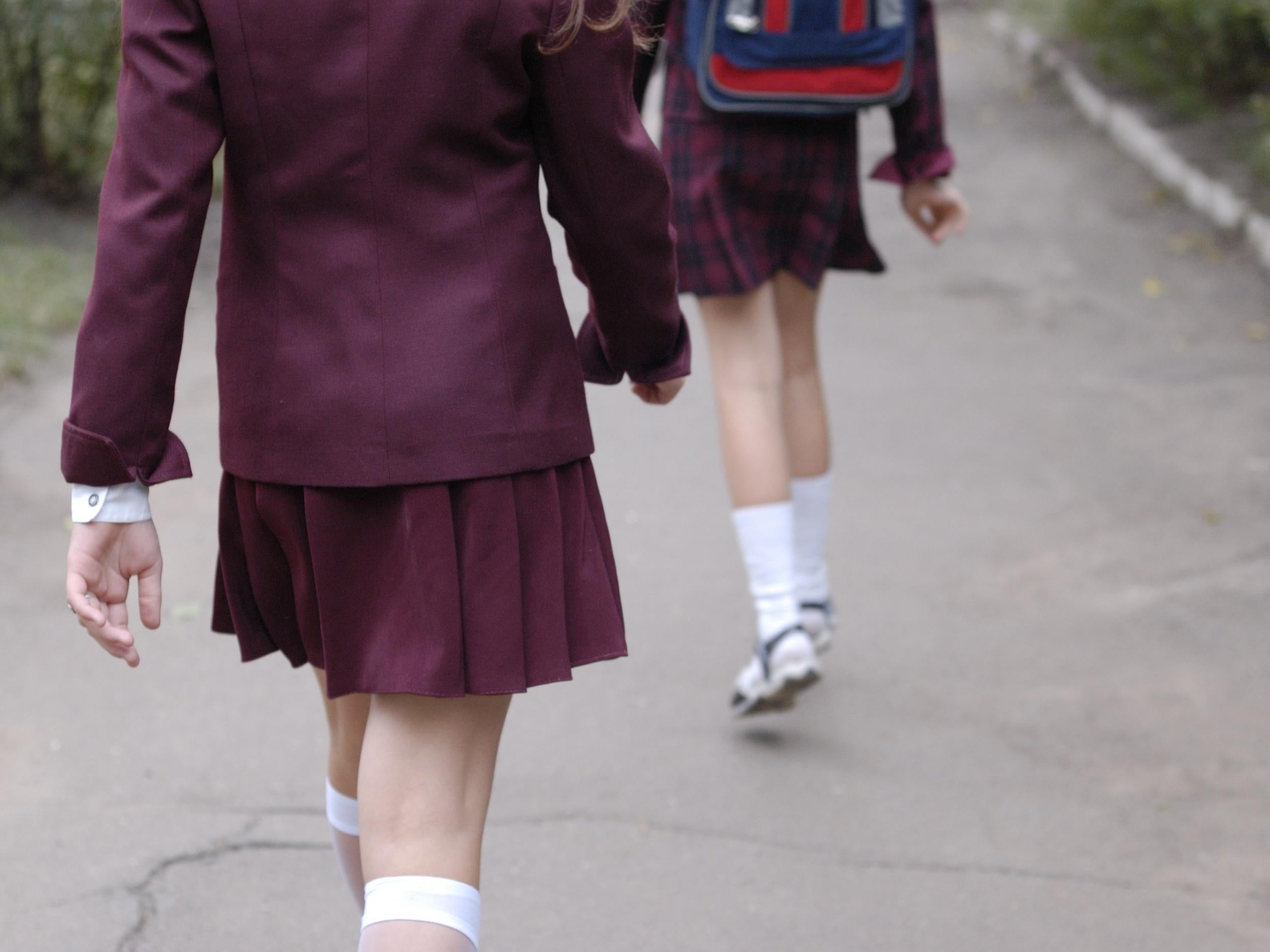Girls win lawsuit over being forced to wear skirts to ‘preserve chivalry’ at North Carolina school
Judge rules school’s uniform policy violates equal protection clause of US Constitution

Your support helps us to tell the story
From reproductive rights to climate change to Big Tech, The Independent is on the ground when the story is developing. Whether it's investigating the financials of Elon Musk's pro-Trump PAC or producing our latest documentary, 'The A Word', which shines a light on the American women fighting for reproductive rights, we know how important it is to parse out the facts from the messaging.
At such a critical moment in US history, we need reporters on the ground. Your donation allows us to keep sending journalists to speak to both sides of the story.
The Independent is trusted by Americans across the entire political spectrum. And unlike many other quality news outlets, we choose not to lock Americans out of our reporting and analysis with paywalls. We believe quality journalism should be available to everyone, paid for by those who can afford it.
Your support makes all the difference.Every so often, Charter Day School in North Carolina would hold fire or tornado drills in which students had to kneel and protect their heads from flying debris, or crawl to avoid imaginary smoke.
But girls had a much more immediate fear: the boys.
“I don’t think the boys were supposed to be looking up our skirts, but they did,” former student Keely Burks said in a statement to a North Carolina court. “I wished I was wearing [trousers] or shorts during those drills.”
But she was prohibited by the school’s uniform policy. Baker Mitchell, the founder of the academy that runs the school, had said the dress code helped to “preserve chivalry and respect among young women and men.” He cited societal concerns such as “teen pregnancies” and “casual sex” for the need to create a learning environment that “embodied traditional values”.
A North Carolina judge has now ruled that the policy was unconstitutional, ending a court fight that began in 2016.
Judge Malcolm Howard ruled that the policy at the independent school violated the equal protection clause of the US Constitution because girls were treated differently to boys. Girls at the school, which serves pupils aged five to 15, could only wear skirts, dresses or skorts (a skirt with shorts underneath) as part of their uniforms, with an exception for PE classes.
Before the lawsuit, the policy had been controversial among some parents and students. Some students had circulated a petition that they say gathered over 100 signatures, only to have it confiscated, Keely wrote on the American Civil Liberties Union blog in 2016.
Parent Bonnie Peltier, who was frustrated with the policy, contacted the ACLU, who helped her and two others file a lawsuit in March of 2016.
“We’re having to tell our daughters, even though this is what they’re teaching you, this is not the way the world works any more,” Ms Peltier told HuffPost last year.
According to the judge’s decision, the dress code forced girls to “pay constant attention to the positioning of their legs during class, distracting them from learning, and has led them to avoid certain activities altogether, such as climbing or playing sports during recess, all for fear of exposing their undergarments and being reprimanded by teachers or teased by boys.”
The school had defended their policy, saying it was based on “traditional values” and “is in place to instil discipline and keep order”, the judge said. “They argue that taking away the ‘visual cues’ of the skirts requirement would hinder respect between the two sexes.”
Mr Howard did not find that argument persuasive. “Defendants have shown no connection between these stated goals and the requirement that girls wear skirts,” he wrote.
ACLU lawyer Galen Sherwin said in a statement: “This policy reflected antiquated gender stereotypes, intentionally sending the message that girls are not equal to boys.”
She said two of the three girls no longer attend the school but that all were “very happy” that other pupils would now be allowed to wear trousers.
Erika Booth, a plaintiff to the case, said her daughter had disliked the policy because “in her daily life, when she is not at school, she never wears a skirt or a dress, ever”. Ms Booth’s daughter said she is eager for a new uniform policy to take effect. “You can really do more in pants than you can in skirts,” she said. “I’m just so happy.”
The Washington Post
Join our commenting forum
Join thought-provoking conversations, follow other Independent readers and see their replies
Comments